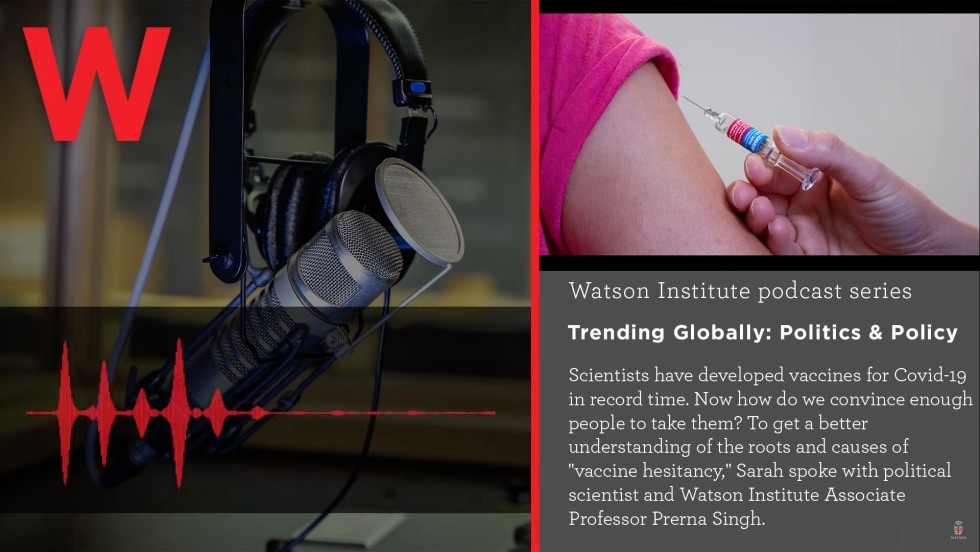Vaccine resistance is as old as vaccines themselves, explains Prerna Singh, Mahatma Gandhi Associate Professor of Political Science and International and Public Affairs, whose research analyzes different communities’ responses to the world’s first vaccine – for smallpox, and the only one to eradicate a disease. “People have very distinct ideas on what it means to be healthy and what disease is.” That’s why successful vaccine campaigns need messages and messengers that are culturally familiar to those who are to receive the vaccines.
In other words, overcoming people’s resistance to getting a Covid-19 vaccine cannot be accomplished through a “one size fits all” approach. In the United States, vaccine resisters are as diverse as Brooklyn’s Orthodox Jewish communities, mothers in Orange County, California, some African-American communities, and Q-Anon adherents, for example, and each group relies on its own leaders as trusted sources of information.
We can’t judge why groups are vaccine resistant, or simply dismiss their world views, even if they conflict with our beliefs; we must believe that these groups care about their own health and that of their loved ones. By connecting to their social media platforms, building alliances within such tight-knit communities, addressing their concerns, and working with their respected leaders – such as Orthodox rabbis in Brooklyn and yoga instructors, herbalists and naturopaths in Orange County – we can allay vaccine fears, adds Singh. “We know these groups don’t trust the government,” for example, so messaging from Dr. Anthony Fauci or the CDC is less likely to be persuasive.
South Africa, which was the initial epicenter of the HIV/AIDS crisis, proves this point. At first, Western medical providers considered traditional healers, or sangomas, to be public health enemies. Over time, these trusted healers came to serve as a bridge between providers of traditional and Western medicines and increased the public health community’s efficiencies in treating HIV/AIDS in South Africa today.
“We know … that giving people [scientific] information not only doesn’t overcome vaccine hesitancy, it actually backfires,” says Singh, citing research that found that repeatedly giving people information on the dangers of measles made them less likely to get vaccinated against the deadly disease. “People got scared, and when they get scared, they shut down.”
It’s a profound shift to move away from our perceptions of ourselves as rational actors or information processors, but we can quickly develop a toolkit to convince vaccine hesitators. “That’s where I’m optimistic, ” says Singh.
